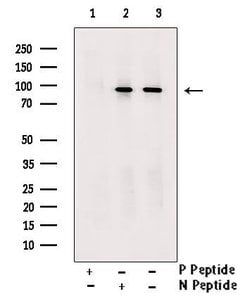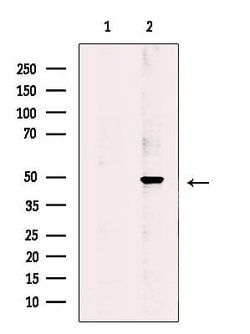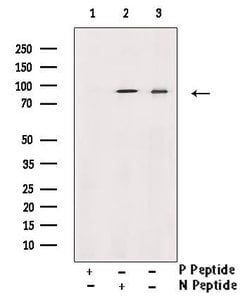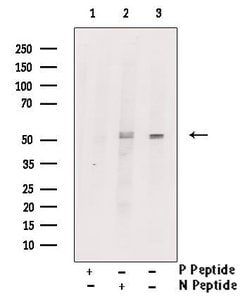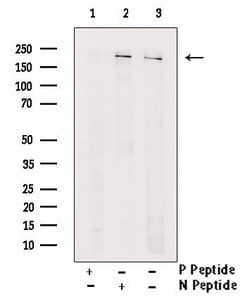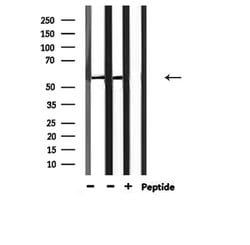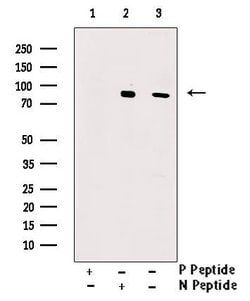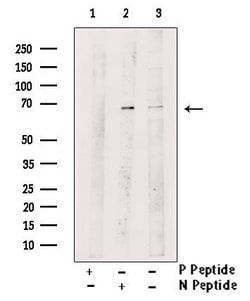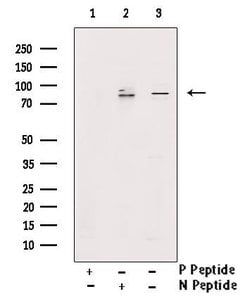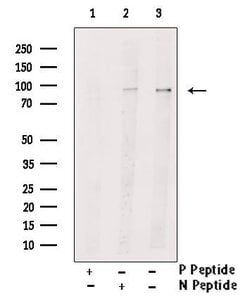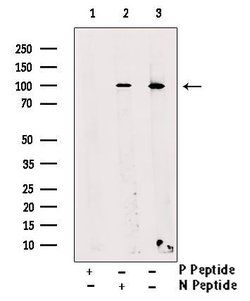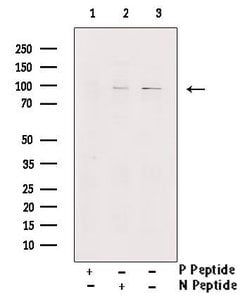Phospho-RAD17 (Ser646) Polyclonal Antibody, Invitrogen™
Manufacturer: Thermo Scientific
Select a Size
| Pack Size | SKU | Availability | Price |
|---|---|---|---|
| Each of 1 | PIPA5105131-Each-of-1 | In Stock | ₹ 46,502.50 |
PIPA5105131 - Each of 1
In Stock
Quantity
1
Base Price: ₹ 46,502.50
GST (18%): ₹ 8,370.45
Total Price: ₹ 54,872.95
Antigen
Phospho-RAD17 (Ser646)
Classification
Polyclonal
Conjugate
Unconjugated
Gene
Rad17
Gene Alias
CCYC; cell cycle checkpoint protein (RAD17); cell cycle checkpoint protein RAD17; DNA damage checkpoint control protein RAD17; DNA repair exonuclease RAD17; FLJ41520; hRad17; MmRad24; R24L; RAD1 homolog; RAD17; RAD17 (Ser647); RAD17 checkpoint clamp loader component; RAD17 homolog; RAD17 homolog (S. pombe); Rad17 like protein; Rad17-like protein; Rad17p; RAD17SP; RAD24; RF-C activator 1 homolog; RF-C/activator 1 homolog; YOR368W
Host Species
Rabbit
Purification Method
sequential chromatography
Regulatory Status
RUO
Gene ID (Entrez)
5884
Content And Storage
-20°C
Form
Liquid
Applications
Western Blot
Concentration
1 mg/mL
Formulation
PBS with 50% glycerol and 0.02% sodium azide; pH 7.4
Gene Accession No.
O75943
Gene Symbols
Rad17
Immunogen
A synthesized peptide derived from human RAD17(Accession O75943), corresponding to amino acid residues around phosphorylated Ser646.
Quantity
100 μL
Primary or Secondary
Primary
Target Species
Human
Product Type
Antibody
Isotype
IgG
Description
- Antibody detects endogenous levels of Rad17 only when phosphorylated at Ser646, which site historically referenced as Ser635
- Rad17 is essential for sustained cell growth, maintenance of chromosomal stability, and ATR-dependent checkpoint activation upon DNA damage
- It has a weak ATPase activity required for binding to chromatin
- Rad17 also participates in the recruitment of the RAD1-RAD9-HUS1 complex and RHNO1 onto chromatin, and in CHEK1 activation
- May also serve as a sensor of DNA replication progression, and may be involved in homologous recombination.
